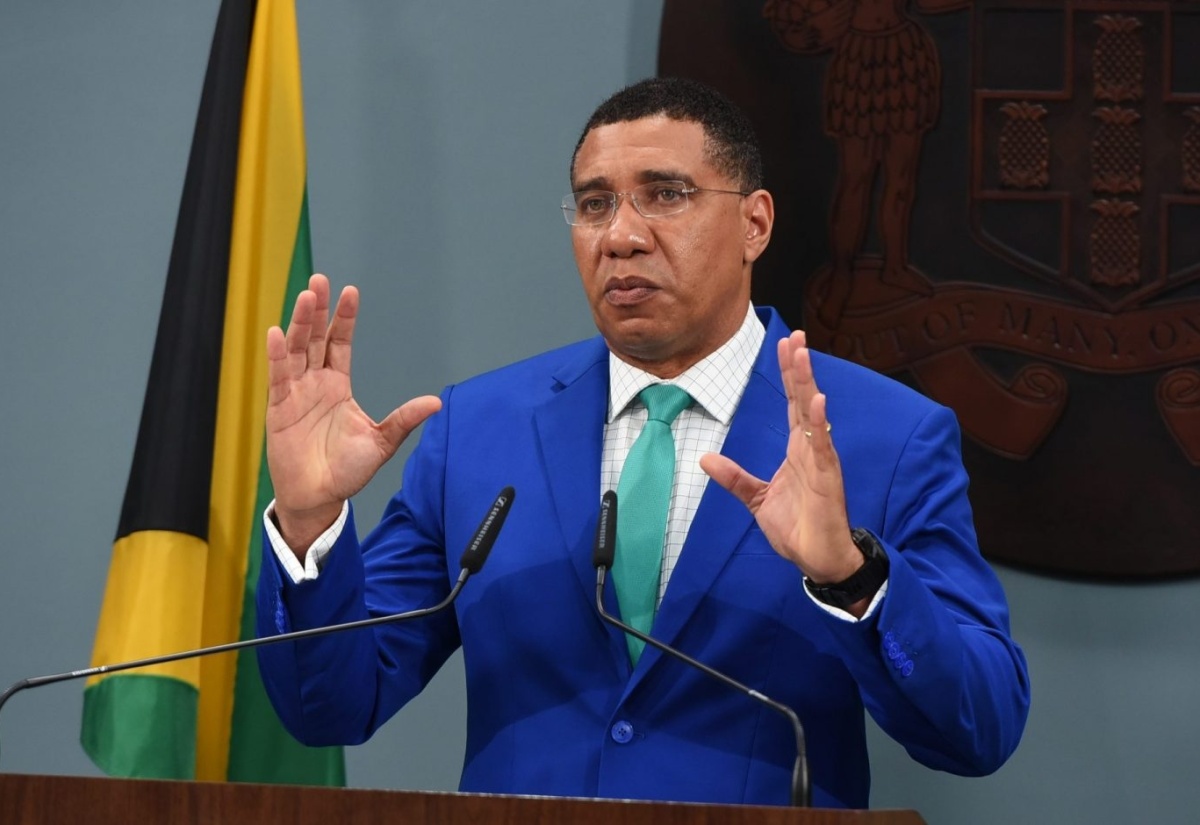Gov’t Mobilising Cleanup and Repair Efforts in Negril Following Recent Tidal Flooding
By: , February 12, 2024The Full Story
The Government is mobilising efforts to carry out cleanup activities and repairs in Negril, Westmoreland, following the impact of flooding associated with heavy tides last week.
During a tour of affected areas on Saturday (February 10), Prime Minister, the Most Hon. Andrew Holness, shared that while it is considered an emergency, there is a process to be followed.
He commended tourism interests who commenced their cleanup and advised that the Government will focus on public access beaches and assist with private beaches, if necessary.
During the heavy tides, a seawall suffered a breach which led to extensive flooding of West End Road and other roadways in the area.
“This particular section of road here has to be reinforced. We’re [going to] have to put in a new sea wall and do all the revetment work. It is an emergency. But again, it has to go through a procurement process,” the Prime Minister said.
Mr. Holness indicated that the long-term solution involves studying the tourism corridor to determine how the roads can be moved inland.
“That’s the solution to protect our transportation infrastructure and to ensure that climate-related activities do not interrupt or disrupt commerce and our lives. It is the intention that, as we do the upgrade with the Montego Bay perimeter road, as we repair Long Hill, as we look towards a bypass for Hopewell – carrying that road more into the interior, as we look to redevelop and develop a new bypass for Lucea, that as we come into Negril proper, we will also have to consider moving the road inland,” he explained.
Mr. Holness pointed out that moving the road poses a challenge, because many of the pathways being considered have already been built out.
However, he said the matter must be addressed very carefully, considering that every building on the corridor is at risk.
“This is a perfect opportunity to explain to Jamaicans the impact of climate change on low-lying coastal areas. The challenge for us is that our tourism coincides heavily with low-lying coastal areas. This is the tourism belt and the nexus of land and sea around tourism, that is what gives us our beautiful product,” the Prime Minister stated.
He informed that in addition to wave action, another impact of climate change is warming of the oceans, which causes increased production of sargassum, a genus of brown seaweed that provides food, protection and habitat for a variety of marine species.
“The problem is that, as this breaks down, it emits a terrible odour that can be very distracting for tourism. It can have a negative impact on tourism and it can be harmful as well, [as] it emits harmful gases,” Mr. Holness said.


